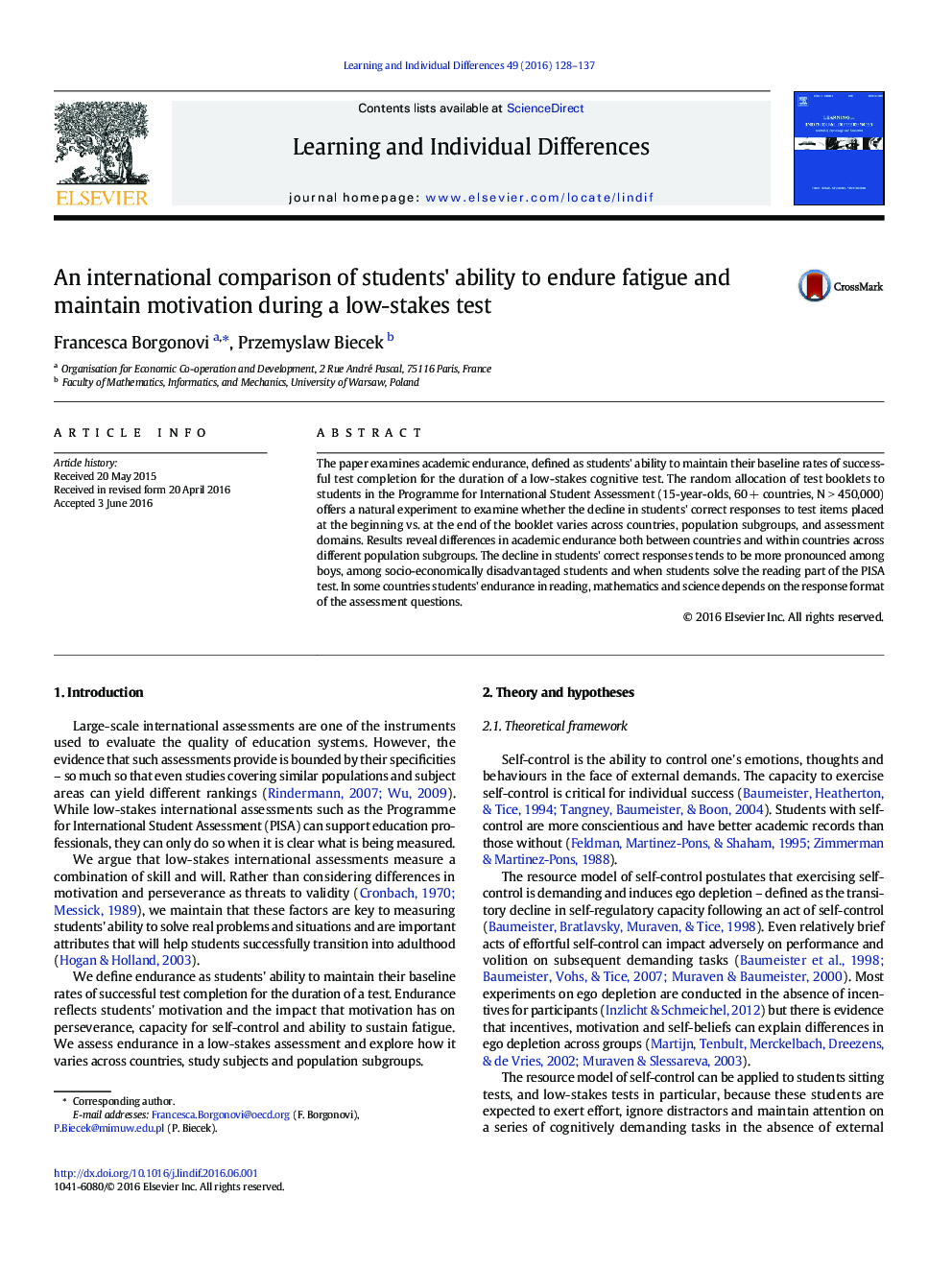| Article ID | Journal | Published Year | Pages | File Type |
|---|---|---|---|---|
| 6844712 | Learning and Individual Differences | 2016 | 10 Pages |
Abstract
The paper examines academic endurance, defined as students' ability to maintain their baseline rates of successful test completion for the duration of a low-stakes cognitive test. The random allocation of test booklets to students in the Programme for International Student Assessment (15-year-olds, 60Â + countries, NÂ >Â 450,000) offers a natural experiment to examine whether the decline in students' correct responses to test items placed at the beginning vs. at the end of the booklet varies across countries, population subgroups, and assessment domains. Results reveal differences in academic endurance both between countries and within countries across different population subgroups. The decline in students' correct responses tends to be more pronounced among boys, among socio-economically disadvantaged students and when students solve the reading part of the PISA test. In some countries students' endurance in reading, mathematics and science depends on the response format of the assessment questions.
Related Topics
Social Sciences and Humanities
Psychology
Developmental and Educational Psychology
Authors
Francesca Borgonovi, Przemyslaw Biecek,
